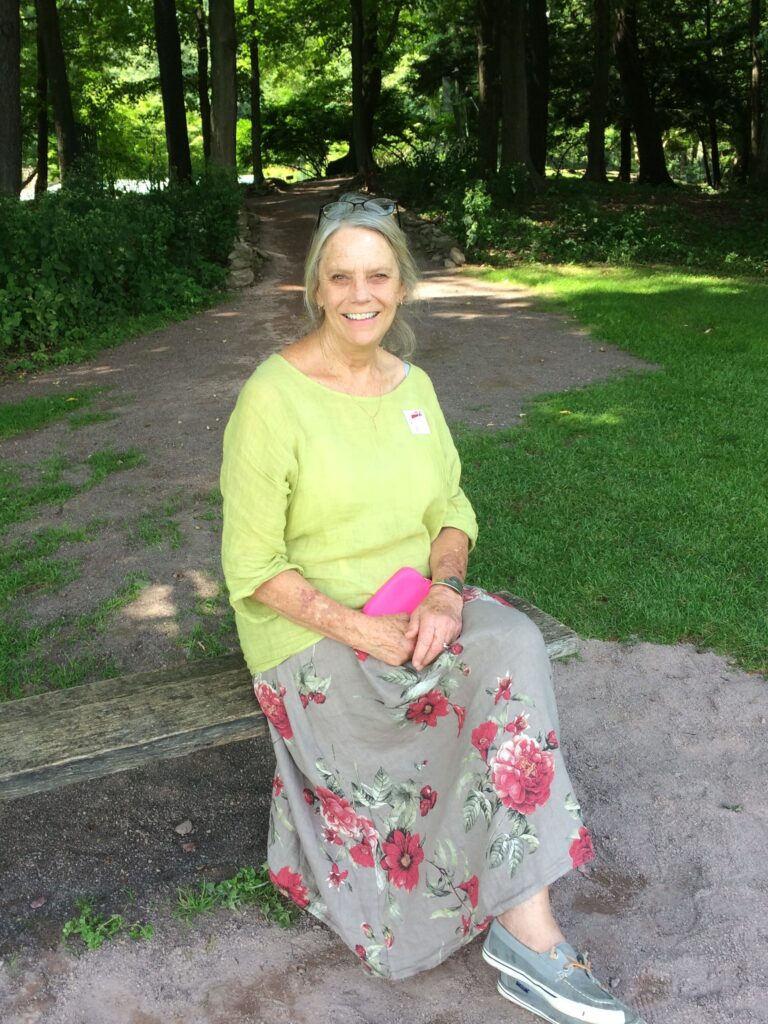Janning Kennedy serves on the CCOF Certification Services, LLC Management Committee, the governing body for CCOF Certification Services, LLC.
In the 1960s, before organic was a household term, Janning Kennedy and her family used to drive from their home in New Mexico all the way to Arrowhead Mills, in Texas, in order to buy wheat from a supplier they trusted.
Later, when Janning was planning her career path, she was inspired by books like The Secret Life of Plants and the back-to-earth movement. “I was pressured by my parents to go back to school, but I didn’t want to unless I was sure I was studying the right thing,” she recalls. “At that time, I was renting a house in Colorado that had 25 acres and a flock of chickens. I remember sitting on the irrigation ditch thinking, ‘I wish I knew what the heck to do with all this.’”
Looking for tips to manage the land and chickens, Janning visited the local agriculture extension office. “They gave me a bunch of pamphlets, which didn’t help me at all, so I decided I wanted to study agriculture and learn for myself,” Janning says. Her parents were all for the idea and she enrolled at UC Davis.
Organic was still a relatively unknown term, even in the California university system. “I knew I wanted to figure out a way to grow organic and to help people understand what it meant,” Janning recalls. She took advantage of an opportunity her school offered to start new classes, and working with a few friends, Janning pulled together a class called Alternatives in Agriculture.
They also petitioned the dean for space to create an organic farm on campus—and got it. “It still exists to the day,” Janning says proudly. “It’s called the UC Davis Student Farm. It helped bring both the university and the extension service into the realm of organics, opening their eyes that there was a need out there and people wanted to know more about it.”
After college, Janning worked for the Butte County Rice Growers Association as a pest control advisor. “There was a lot of conventional and that was okay, but my interest shifted towards the organic growers like the Lundbergs,” she says. “I was comfortable with both, but gravitated towards the organic.”
Balancing her professional life while married and caretaking young children was challenging, but Janning made it work. When Janning heard CCOF was holding an inspector training, she went and was hired as one of the first paid inspectors. She says, “I would do the mixed farms and the difficult cases. This was back when the farmers were still inspecting each other. It was the perfect job for me, part-time so I could still take care of my kids and work with organic agriculture.”
Janning began getting involved in CCOF’s inspector trainings and joined the Certification Inspector Standard Committee. She became the Certification Chair in the Central Coast in the late 1990s. “Federal law was just coming onboard with organic,” Janning says. “I authored CCOF’s first Farm Plan form.”
Janning has worked as the CCOF Director of Processing Certification, worked on a mixed organic/conventional farm in Mexico overseeing packing and transportation, and worked for IOAS while living in Chile and Kenya. She has audited organic certification agencies, farms, and processors in India, Japan, Argentina, Uganda and many other countries. “I’ve seen organic farming and certification from all sides of the table.”
Janning’s career has embraced her strongly-held beliefs about organic agriculture. “I really believe in working with nature and being aware of life in the soil, of figuring out how to feed the world in harmony with those things,” she says. “We’ve learned a lot. When I was in university, we knew very little about the biome, not nearly as much as we’re coming to know now. I think it’s going to be borne out, ultimately, that organic is the way to preserve this earth of ours.”

